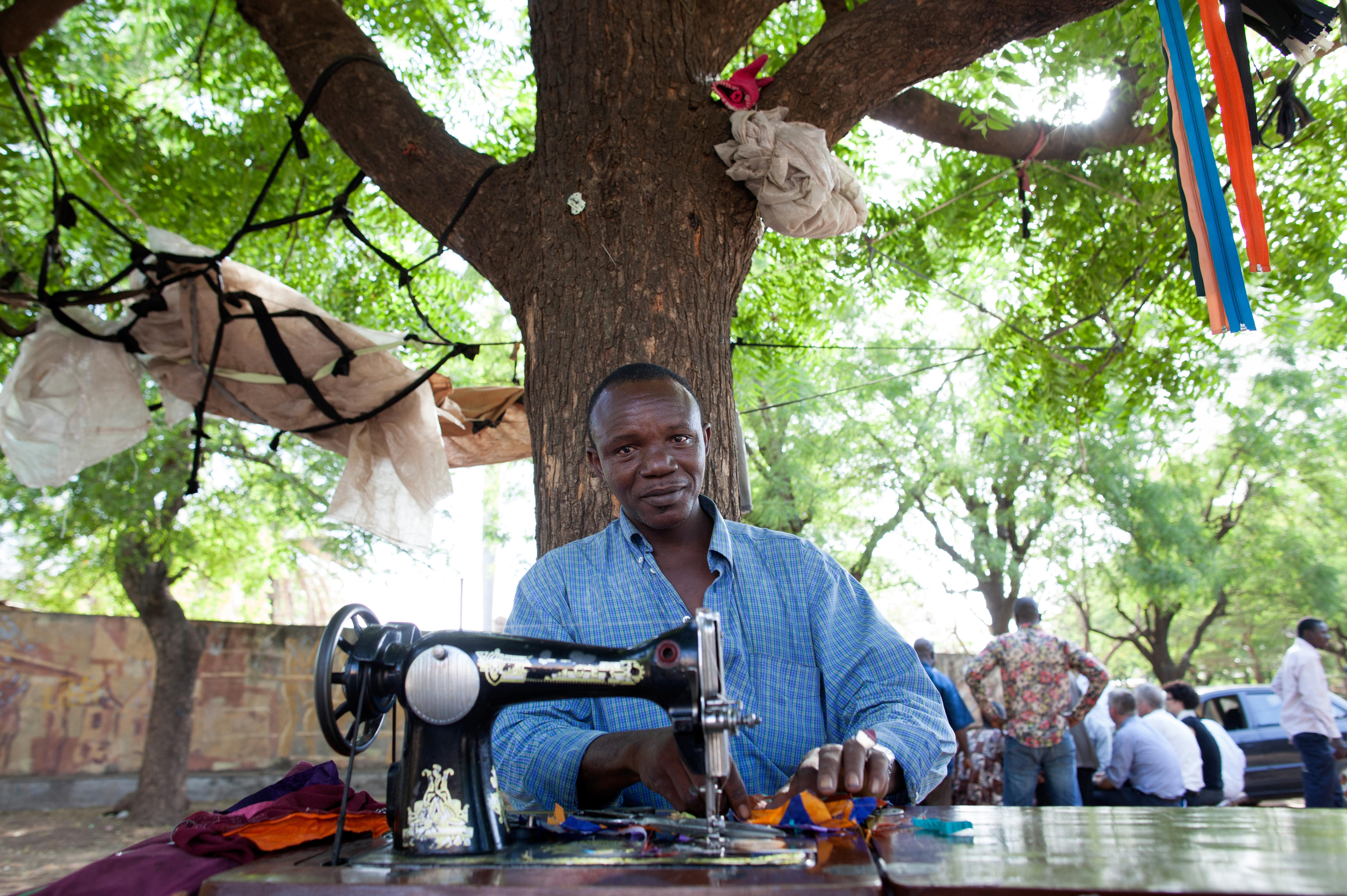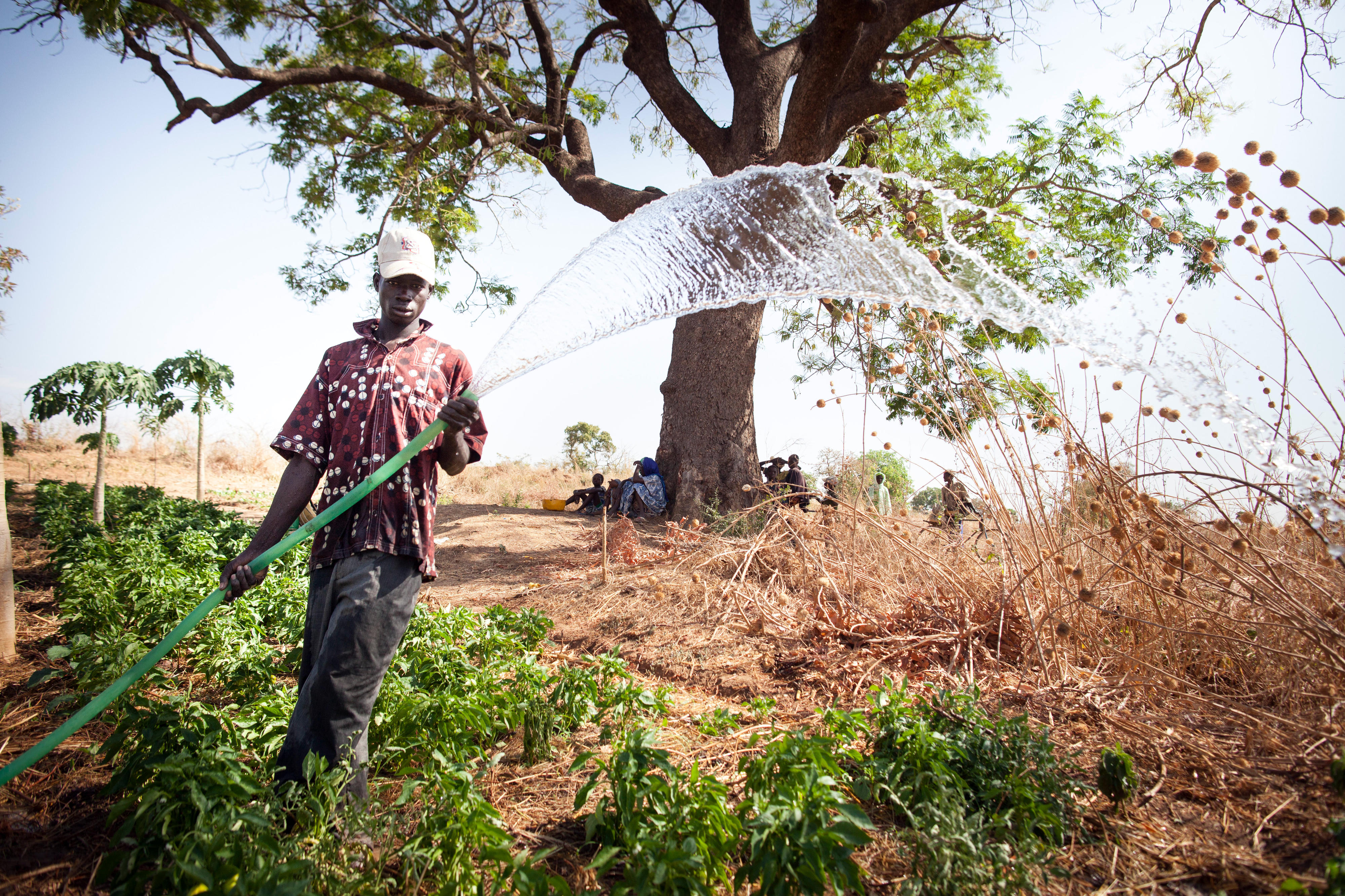Economic situation Most of the population works in agriculture
Tailor with his sewing machine on a street in Bamako, Mali
Shortcomings in the country's infrastructure (for example roads) and its dependence on oil imports are, however, holding back economic development. Most people earn their money in the informal sector, so that the tax revenue of the country is low.
The majority of the working population is employed in the agricultural sector. Yet, traditional dryland farming, where plants depend exclusively on rainwater, is not able to provide food security for the rapidly growing population.
Mali faces a range of environmental challenges which directly impact the economy. They include deforestation, soil erosion, falling groundwater levels, progressive siltation of the Niger River and an increase in extreme weather events.
The latest United Nations Human Development Index (HDI) ranks Mali 188th out of 193 countries.
A farmer in Mali is irrigating his field.
As at: 25/07/2023

